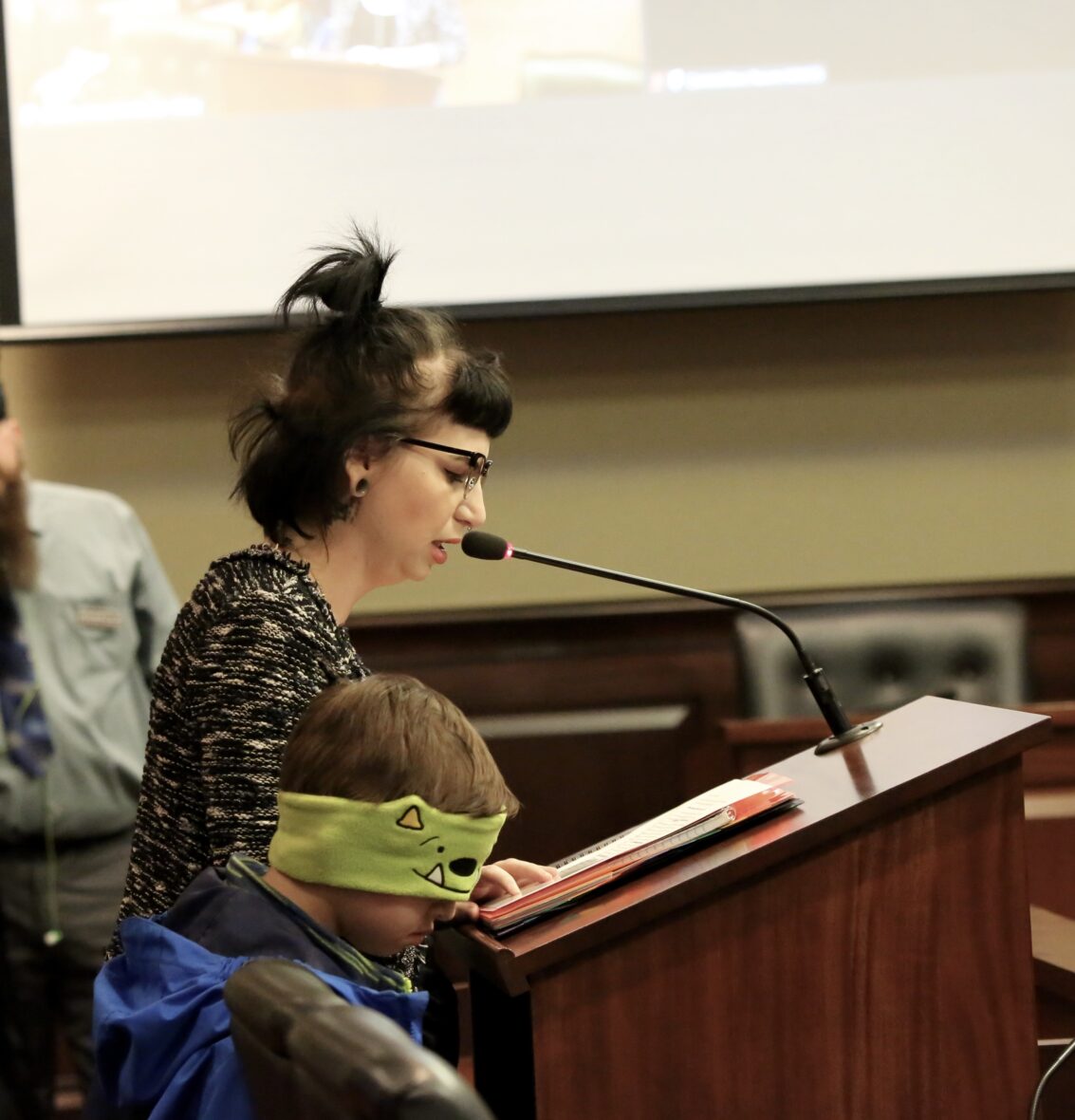
Even before the six hours of hearings, stretched across two afternoons, the vote was a done deal.
It’s no surprise that the Senate Education Committee approved a controversial, $45 million education savings accounts bill. Even before the hearings began Tuesday, five of the committee’s nine members had signed on as sponsors or co-sponsors.
The outcome — Wednesday’s 6-3 committee vote — was predictable. But the hearings were more than just a mere formality. They instead provided insight into how Idahoans look at their local schools, and education’s role in society. And how, as parents and instructors and taxpayers, Idahoans feel about the catchphrase of school choice.
- Shane Schulthies of Rexburg — a teacher with an online charter school — talked about his experience raising 10 kids. He has been able to match his kids’ different needs by shuffling through public, private and charter schools and homeschooling, but often it was costly. “You’ve got to move to a system that allows choice, and this bill does that.”
- Heather Stout lives in a farm and ranch outside Genesee; her kids attended Genesee’s public schools and later the University of Idaho. But she noted that her community has no education options, beyond the public schools. “If this bill goes forward, it will decimate small, rural communities like mine.”
- Carolyn and Tom Harrison of Idaho Falls took turns voicing their support. Their daughter attended a private religious school until seventh grade — when, said Carolyn, her daughter had to “dummy down” for six years. “Idaho is ready for a market-driven, competition-oriented education strategy that works for all,” Tom said.
- Jody Brostrom of Salmon talked about surviving a heart attack in 2017, and the importance of the remote community’s nonprofit hospital. Small towns have enough trouble finding experienced medical professionals — and Salmon’s deteriorating elementary school and chronic failure to pass bond issues only make the recruiting process tougher. “Most (applicants) with kids pass on job offers.”
These comments help weave together a few important threads in the debate over Senate Bill 1038, the education savings accounts bill now headed to the Senate floor.
Supporters say the Idaho ESAs will put school choice into motion by putting money into the hands of parents. The $5,950-per-student ESAs will make private school or homeschooling more affordable for more parents. Market pressures, they say, will encourage innovation in public schools, and drive out wokeness from the classroom. “Competition is what provides the ultimate accountability,” said bill co-sponsor Sen. Tammy Nichols, R-Middleton, as she wrapped up committee debate Wednesday.
Critics say competition is a false promise, especially in rural communities, where private and parochial school offerings are scarce. As their argument goes, the ESA programs will use state dollars to subsidize private schools in urban areas, at the expense of rural schools. As the ESA program grows and its price tag swells, they said, rural schools will have no choice but to go back to taxpayers for help.
The end result, they argue, would weaken local public schools — a common good, and a focal point in rural communities. “Public schools are not a bad product that need competition,” said Sharese Maynard, business manager for the Butte County School District.
For the record, the balance of this week’s testimony came from opponents. But always, this turnout reflects a self-selected sample — and it often reflects special interest groups’ efforts to fill the signup sheets.
The bottom line: Senate Education did hear from more than 100 people Tuesday and Wednesday. And not just the usual crowd of Statehouse regulars. The Legislature’s remote testimony option allowed Idahoans to speak up in their native habitat: Homeschool mom Chantelle Holman had a chance to urge the committee to pass SB 1038, while one of her five sons fervently hugged her. The remote testimony also broke down geographic barriers, allowing dispatches from Idaho Falls and Challis to Viola and Post Falls.
This week, lawmakers had a chance to hear from people beyond the Statehouse bubble, on one of the year’s most divisive education bills rattling around the Statehouse. And that has to be a good thing.
Sure, senators heard from an unscientific sample, but it’s not like objective research has done a bangup job of gauging public opinion.
This year’s Boise State University Idaho Public Policy Survey found a deep split on ESAs — with a slight plurality in support. But researchers acknowledged a flaw in their survey wording, which effectively conflated charter schools with private and parochial schools.
When the Mountain States Policy Center went into the field at about the same time, their researchers found a stronger base of support on school choice — but more than one-third of their respondents said they had no idea what school choice is.
This week was certainly not the last word in the ESAs/school choice debate.
If SB 1038 makes its way through the Senate, the bill would face another round of hearings in the House Education Committee — a more moderate and harder-to-handicap committee than Senate Education.
And it’s quite possible that SB 1038 isn’t even the last school choice bill of the year. Casting his vote against SB 1038 — a proposal that is “probably too much, too fast” — Senate Education Chairman Dave Lent, R-Idaho Falls, hinted at other proposals waiting in the wings, and carrying a smaller pricetag.
For now, SB 1038 is the bill up for debate. This week’s debate prompted dozens of Idahoans to talk about something more fundamental: what education means to them.
Each week, Kevin Richert writes an analysis on education policy and education politics. Look for it every Thursday.
